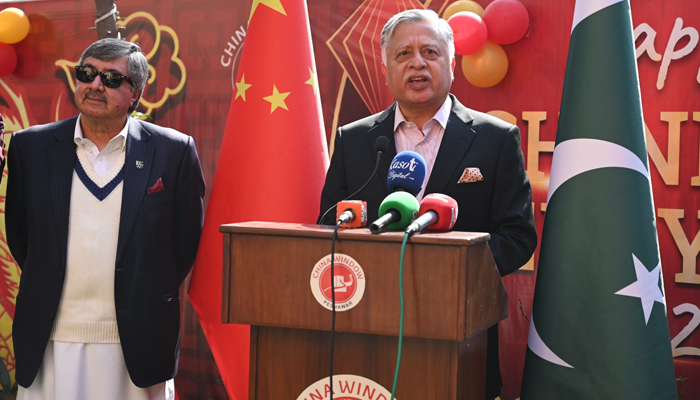Concerns voiced over excessive increase in gas tariffs
SCCI President states another excessive increase in natural gas tariff would adversely hit economy
PESHAWAR: The business community has expressed grave concern over the recent unprecedented hike in the natural gas tariffs by the interim government and called for a reversal of the decision.
In a statement issued here on Friday, Sarhad Chamber of Commerce and Industry (SCCI President Fuad Ishaq urged the government to cut down electricity, gas, and fuel prices to provide relief to the masses and save industries.
The SCCI President Fuad Ishaq stated another excessive increase in natural gas tariff would adversely hit the country’s economy and lead to the closure of industries and businesses.
The SCCI chief said the gas price increase was completely unjust to the country’s economy and poor people. He expressed anguish over the increase in fuel prices, saying that gas, electricity, and fuel, were used by industries.
The SCCI head said the frequent increases in prices of these utilities would jack up the cost of industrial products and increase the price-hike, which could directly affect the poor masses and negatively impact the economy.
Fuad Ishaq said the increase in fuel prices and gradual hike in gas tariff policy was multiplying the public woes.
The SCCI chief expressed concern over low gas pressure to domestic consumers and industries, saying KP was surplus in gas production and had the constitutional right to the natural resources but that was being denied.
A blow to the textile industry: The Khyber Pakhtunkhwa Textile Mills Association (KPTMA) has flayed the decision by the government to raise gas tariffs, terming it a blow to the textile sector.
KPTMA Chairman Muhammad Kamran Shah feared the rise in tariffs would have adverse impacts.He said: “The decision to hike gas prices by 14.58 percent within three months, coupled with a staggering 150 percent increase since January 2023, and an overall increase of 222.77 percent from the rate of Rs 852 per MMBTU applicable till December 31, 2022, has sent shockwaves through the textile industry, particularly in Khyber Pakhtunkhwa”.
Kamran Shah said earlier in November 2023, the caretaker government increased gas prices by 118.18 pc compared to the rate applicable from January 2023 and 181.69 percent from the rate applicable till December 31, 2022.
He said these hikes in gas tariffs were beyond the absorption limit of the export-oriented textile industry and became uncompetitive in the international market as we cannot export inflation.
Kamran Shah said half of the textile industries in KP had already ceased operations, while the remaining were nearing a closure.
He said the recent notification from the Oil and Gas Regulatory Authority announcing yet another gas price hike on February 15 had exacerbated the industry’s plight.
Industrialists Association Peshawar: Members of the business community expressed grave concern over rising gas, and electricity prices, and retaining policy rates. The concern was taken up during a meeting of the delegation of Khyber Pakhtunkhwa businessmen led by the president of Industrialists Association Peshawar Ayub Zakori with Caretaker Prime Minister Anwarul Haq Kakar, said in a press release here on Friday.
Other members of the delegation include Senator Nauman Wazir, Haris Mufti, and Muqtasid Ahsan, Adeel Rauf, Sherbaz Bilour and Zarak Khan.
Ayub Zakori said prices of gas, electricity and fuel along with bringing the policy rate to single digits are essential for flourishing business, trade, and industries and stabilization of the economy.
He urged the government to thoroughly review all decisions and evolve policies in the best interest of the national economy.
-
 Andrew, Sarah Ferguson Refuse King Charles Request: 'Raising Eyebrows Inside Palace'
Andrew, Sarah Ferguson Refuse King Charles Request: 'Raising Eyebrows Inside Palace' -
 Adam Sandler Reveals How Tom Cruise Introduced Him To Paul Thomas Anderson
Adam Sandler Reveals How Tom Cruise Introduced Him To Paul Thomas Anderson -
 Washington Post CEO William Lewis Resigns After Sweeping Layoffs
Washington Post CEO William Lewis Resigns After Sweeping Layoffs -
 North Korea To Hold 9th Workers’ Party Congress In Late February
North Korea To Hold 9th Workers’ Party Congress In Late February -
 All You Need To Know Guide To Rosacea
All You Need To Know Guide To Rosacea -
 Princess Diana's Brother 'handed Over' Althorp House To Marion And Her Family
Princess Diana's Brother 'handed Over' Althorp House To Marion And Her Family -
 Trump Mobile T1 Phone Resurfaces With New Specs, Higher Price
Trump Mobile T1 Phone Resurfaces With New Specs, Higher Price -
 Factory Explosion In North China Leaves Eight Dead
Factory Explosion In North China Leaves Eight Dead -
 Blac Chyna Opens Up About Her Kids: ‘Disturb Their Inner Child'
Blac Chyna Opens Up About Her Kids: ‘Disturb Their Inner Child' -
 Winter Olympics 2026: Milan Protestors Rally Against The Games As Environmentally, Economically ‘unsustainable’
Winter Olympics 2026: Milan Protestors Rally Against The Games As Environmentally, Economically ‘unsustainable’ -
 How Long Is The Super Bowl? Average Game Time And Halftime Show Explained
How Long Is The Super Bowl? Average Game Time And Halftime Show Explained -
 Natasha Bure Makes Stunning Confession About Her Marriage To Bradley Steven Perry
Natasha Bure Makes Stunning Confession About Her Marriage To Bradley Steven Perry -
 ChatGPT Caricature Prompts Are Going Viral. Here’s List You Must Try
ChatGPT Caricature Prompts Are Going Viral. Here’s List You Must Try -
 James Pearce Jr. Arrested In Florida After Alleged Domestic Dispute, Falcons Respond
James Pearce Jr. Arrested In Florida After Alleged Domestic Dispute, Falcons Respond -
 Cavaliers Vs Kings: James Harden Shines Late In Cleveland Debut Win
Cavaliers Vs Kings: James Harden Shines Late In Cleveland Debut Win -
 2026 Winter Olympics Snowboarding: Su Yiming Wins Bronze And Completes Medal Set
2026 Winter Olympics Snowboarding: Su Yiming Wins Bronze And Completes Medal Set




